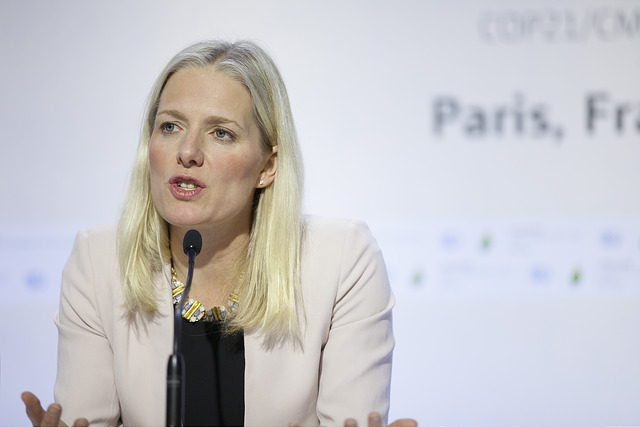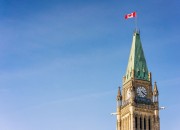Some of the world’s top climate diplomats will descend on Montreal this weekend, as Minister Catherine McKenna co-hosts a high level climate meeting with counterparts from China and the European Union. The international meeting just so happens to be on one of our favourite subjects: implementation of the landmark global climate deal, the Paris Agreement.
Minister McKenna, together with China’s Special Representative for Climate Change Affairs, Xie Zhenhua, and the EU Commissioner for Climate Action and Energy, Miguel Arias Cañete, will convene ministers and officials from more than 30 countries to reconfirm their commitment to the Paris Agreement, and to forge continued progress on the Paris Agreement rulebook.
It’s hugely encouraging that these major economies are coming together to sustain global momentum on mitigating the most damaging impacts of climate change. With the next UN climate meeting in Bonn, Germany just over two months away, gatherings like this one signal to the international community that the world’s major economies aren’t backing away from the climate fight.
This signal is important to future progress, since the international community still has its work cut out for it to fully implement the Paris Agreement. The Agreement officially entered into force on November 4, 2016, less than one year after global consensus was achieved at COP21 in Paris. This was significant, since the initial expectation was that the Paris Agreement wouldn’t enter into force until 2020.
Subsequent to the COP decision (“Adoption of the Paris Agreement”), the secretariat to the UN climate body produced a work programme outlining the specific tasks required to move the Paris Agreement forward. This work began in 2016, and we anticipate that its specific nuts and bolts will be under discussion at this weekend’s ministerial meeting.
Despite President Trump’s intention to pull the U.S. out of Paris, the U.S. is sending officials to this weekend’s ministerial meeting. Moreover, Minister McKenna will spend time with White House chief economic advisor Gary Cohn while in New York next week. In fact, it appears that the next two weeks will provide tremendous insight into how the Trump administration will engage on climate issues going forward. Despite President Trump’s Rose Garden speech announcing his government’s intention to withdraw from the Paris deal, the earliest the U.S. can withdraw is November 2020. In an interview with the Canadian Press yesterday, Minister McKenna said she believes it’s possible to convince the U.S. to not withdraw from the Agreement.
No matter where the U.S. lands on its approach to reducing carbon pollution, now is the time for all major economies to focus on concrete actions to reduce emissions and achieve their Nationally Determined Contributions. The true test for Paris compliance is whether or not domestic policies align with the ambition of the Agreement. On this score, Canada’s new Pan-Canadian Framework on Clean Growth and Climate Change (PCF) is a strong step in the right direction.
Across Canada, governments, industry, NGOs, and other experts are working overtime to design regulations to implement the policy promises contained within the PCF. Still, governments must move more quickly to translate those commitments into tangible emissions reductions. Moreover, Canada still has an “ambition gap” to its 2030 climate target, since the PCF contains 44 Mt worth of unaccounted for emissions reductions. True climate leadership from Canada requires all federal, provincial and territorial policy decisions to be made with an eye to Canada’s 2030 climate target, and our broader obligations under the Paris Agreement.
Implementing the Paris Agreement will unlock transformative change in our economy. To some that might sound scary, but the good news is that a decarbonized world will bring an improved standard of living, more climate-resilient infrastructure, and serious economic benefits. We all stand to gain from global action on climate change.
Increasingly, countries without progressive environmental policies will be left behind as the world decarbonizes to avert the most dangerous impacts of climate change. It’s clear that world leaders are responding to this new reality: 146 countries have ratified the Paris Agreement, with powerhouse economies — including China, India, and the EU — holding course despite President Trump’s backsliding.
This weekend’s ministerial has us newly optimistic about the world’s desire to fight climate change. And as our federal government steps up to host this critical meeting, we’re also feeling hopeful that Canada will use its considerable diplomatic might to ensure the world’s major economies each do their fair share to live up to the Paris Agreement. But like most things, the best way to ensure this outcome is for us to lead the pack.







